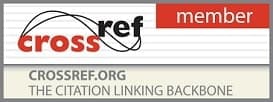
Printed Journal | Refereed Journal | Peer Reviewed Journal
2023, Vol. 5, Issue 2, Part A
Effect of video assisted teaching programme on knowledge and attitude regarding osteoporosis among housekeeping women at selected tertiary care hospital, Puducherry district
Arockiafathima, Sheela, Sagayamary, Dr. Malarvizhi S, SR Dr. Mony K and Dr. Ravichandran
Background: “A Study to assess the effect of video assisted teaching programmer on knowledge and attitude regarding osteoporosis among housekeeping women at selected tertiary care Hospital, Puducherry District”. Osteoporosis is a growing health problem in developing countries and it is the most common bone disease, affects both genders, but predominantly affects women. It is characterized by decreased bone mass and structural deterioration of bone tissue, leading to an increased bone fragility and susceptibility to fractures in the hip, spine, and wrist, following minimal trauma. Since osteoporosis is a “silent disease”.
Methodology: The Quantitative research approach with a quasi-experimental one-group pretest-posttest research design was used. Sample and sampling technique: this study included 90 housekeeping women and the technique was Simple Random sampling technique (Lottery method). Setting: The research setting was Pondicherry Institute of Medical Science, Puducherry. Tools: The Socio-demographic variables and structured knowledge questionnaire and structured attitude questionaries’ through 5 Point likert scale were used to collect the data. After assessing the pre-test level of knowledge and attitude of the sample video-assisted teaching programme on knowledge and attitude regarding osteoporosis was administered to housekeeping women. At the end post test was conducted.
Result: In the pretest knowledge score was 60% had poor knowledge, 24.4% had average knowledge and 15.6% had good knowledge. In posttest12.2% had poor knowledge, 8.9% had average knowledge and 68.9% had good knowledge. Regarding overall attitude on osteoporosis, 54.4% had a poor attitude, 27.8% had an average attitude and 17.8 % had a good attitude in the pretest. In the posttest 11.1% had poor attitude, 25.6% had average attitude and 63.3% had good attitude. There was a significant association between the level of knowledge with selected socio-demographic variables such as age and residency. There was a significant association between levels of attitude with selected socio-demographic variable education.
Conclusion: The study findings revealed that there was a significant improvement in the knowledge and attitude among housekeeping women followed by the effect of video-assisted teaching programmes on osteoporosis.
Pages : 13-17 | 462 Views | 218 Downloads

How to cite this article:
Arockiafathima, Sheela, Sagayamary, Dr. Malarvizhi S, SR Dr. Mony K, Dr. Ravichandran. Effect of video assisted teaching programme on knowledge and attitude regarding osteoporosis among housekeeping women at selected tertiary care hospital, Puducherry district. Int J Adv Res Med Surg Nurs 2023;5(2):13-17. DOI: 10.33545/surgicalnursing.2023.v5.i2a.132
Related Journal Subscription





 Other Journals
Other Journals
